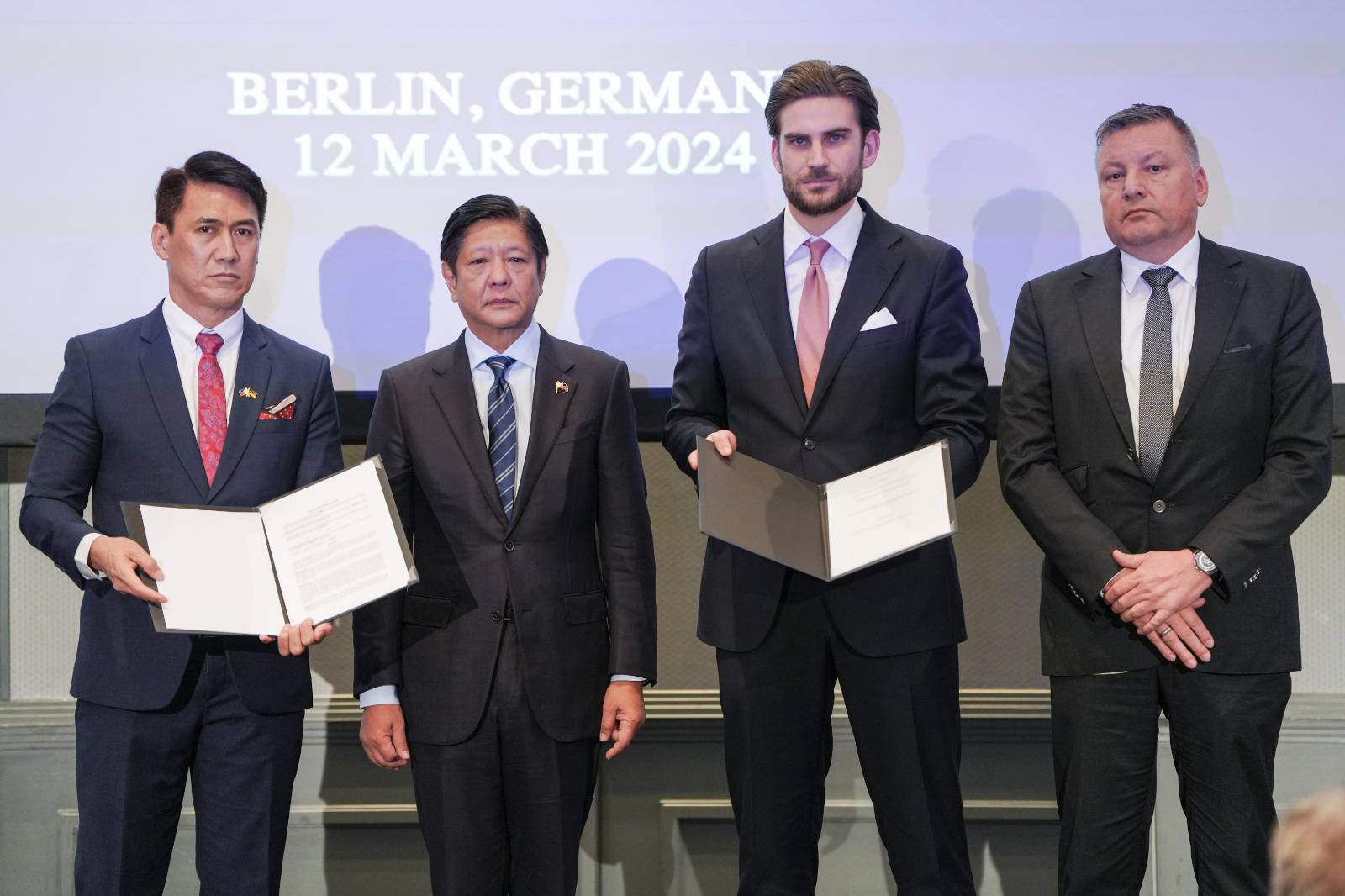News
PH, Germany ink agreement to reskill, upskill Filipino workers

The Philippines and Germany on Tuesday inked an agreement aimed at capacitating Filipino workers in the fields of digitalization and the green economy. (PCO Photo)
MANILA – The Philippines and Germany on Tuesday inked an agreement aimed at capacitating Filipino workers in the fields of digitalization and the green economy.
The renewal of Cooperation Program between the Technical Education and Skills Development Authority (TESDA) and the Federal Institute for Vocational Education and Training (BIBB) was signed during Marcos’ three-day working visit to Berlin, Germany.
In a statement, Communication Secretary Cheloy Garafil noted that under the agreement, capacity-building measures, such as annual thematic visits, would be carried out.
Garafil said both TESDA and BIBB would provide workplace and technical facilities that are free of charge during the thematic visit.
“Other measures include exchange on policy research and knowledge management, support evaluation for apprenticeship and dual training systems programs, and support evaluation and improvement of the Study on the Employment of Technical and Vocational Education and Training (TVET) Graduates (SETG),” she said.
“Aside from capacity building, there will be exchanges under Philippine Regional Innovation Centres (RIC) and German Center of Vocational Excellence (CoVE), with the aim of demonstrating how digital learning are embedded in the newly founded 17 RIC and CoVE.”
There will also be joint work within the Bridging Innovation and Learning in TVET (BILT) Project, a UNESCO-UNEVOC initiative that implements long-term bridging through peer learning and knowledge exchange with defined regional networks between Europe and the Asia Pacific.
Garafil said the BIBB and the International Center for Vocational Education and Training UNESCO-UNEVOC would jointly coordinate the BILT initiative, which is sponsored by the German Federal Ministry for Education and Research (BMBF).
“The BILT initiative provides TVET stakeholders with a platform for policy learning and peer learning with BILT supporting the TVET community to address current challenges in TVET systems, which arise due to technological, social, environmental, and workplace changes,” Garafil said.
Several activities like bridging, innovation, and learning activities will be conducted until 2025.
A Joint International Roadshow digital media in TVET will also be done to systematize examples of good practice to structure international discourse and the use of digital applications.
Access to German labor market
German Chancellor Olaf Scholz said Filipinos could seize the opportunities in the German labor market, after the passage of legislations in the European country for the easier entry of foreign workers.
“The legislation that we’ve just passed lay the foundation and make it a lot easier for people to have access to the German labor market,” Scholz said in a joint press conference with Marcos.
“I believe it to be the probably the most advanced and modern legislation in that regard. We know that our prosperity and growth depend on professional workers from outside and we want to create favorable conditions here.
”
He made the remarks as he emphasized that the cooperation program signed by the two nations on vocational education and training would promote the upskilling and reskilling of Filipino workers.
He expressed hope that the legislation would improve the labor cooperation between Germany and the Philippines.
Germany’s immigration law reforms were introduced in three stages starting November last year, with the aim of making it easier for skilled workers from outside the European Union (EU) to move to Germany.
The German government gave its final approval for the law in July last year, and was expected to come into force in three steps in November 2023, March 2024, and June 2024. The new law aims to attract skilled foreign workers and combat labor shortages in the country.
Marcos acknowledged the importance of collaboration with Germany in skills vocational training, as it would help the Philippines fulfill its bid to transform its economy.
“The transformation can only occur when our workforce is, I think the buzz words everybody uses now is upskill and reskill,” he said. “And we look to Germany for much of that training, especially since we are very much immersed now in the digital space and the high-technology requirements for the workforce — the training for high-technology jobs in the workforce — is something that will be necessary to keep our economy thriving.”
Germany serves as second home to about 35,930 Filipinos, 82.36 percent of whom have permanent or temporary residence status.





















